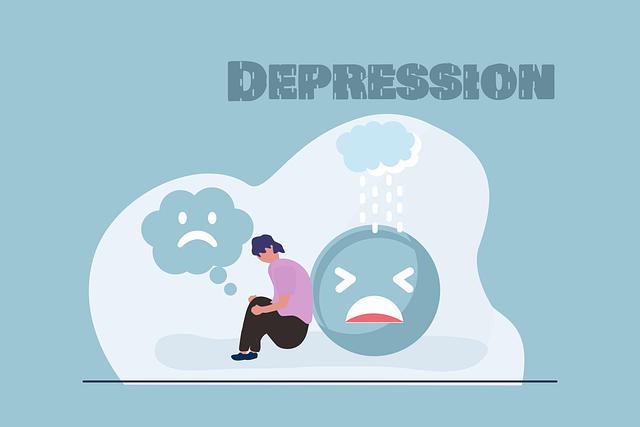Broomfield Chronic Illness Therapy focuses on enhancing social skills development for individuals with mental health conditions, addressing a crucial aspect of recovery often overlooked. By integrating self-care practices, communication strategies, and cultural sensitivity, this specialized program equips clients with the tools to confidently navigate social situations, reduce isolation, and improve overall mental well-being. Through tailored sessions, role-playing, and group activities, Broomfield Chronic Illness Therapy fosters meaningful connections and builds resilience, ultimately leading to better quality of life and anxiety relief.
Social skills training is a powerful tool in supporting individuals with mental health conditions, offering a path to enhanced well-being. This article explores the intricate link between social skills and mental health, highlighting the role of Broomfield Chronic Illness Therapy in fostering meaningful connections. We delve into identifying challenges that hinder social functioning, present practical strategies for improving communication, and emphasize building resilience to overcome barriers to social engagement.
- Understanding the Link Between Social Skills and Mental Health
- The Role of Broomfield Chronic Illness Therapy in Social Skills Development
- Identifying Challenges: Recognizing Impaired Social Functioning
- Strategies for Enhancing Communication and Interaction
- Building Resilience: Overcoming Barriers to Social Engagement
Understanding the Link Between Social Skills and Mental Health

Social skills training plays a pivotal role in managing mental health conditions, offering a path to improved well-being. The connection between social skills and mental health is profound; individuals with strong interpersonal abilities often exhibit better coping mechanisms and enhanced resilience against stress and anxiety. Conversely, those struggling with social interactions may be more susceptible to feelings of isolation, depression, and burnout.
At Broomfield Chronic Illness Therapy, we recognize that teaching and nurturing social skills can significantly contribute to Anxiety Relief and Burnout Prevention. By integrating Self-Care Practices into the training curriculum, our programs empower individuals to navigate social situations with confidence, fostering a sense of belonging and improving overall mental health outcomes.
The Role of Broomfield Chronic Illness Therapy in Social Skills Development

Broomfield Chronic Illness Therapy plays a pivotal role in fostering social skills development for individuals managing mental health conditions. The program recognizes that effective communication is a cornerstone of recovery, especially for those grappling with anxiety or other challenges that can isolate them socially. Through tailored sessions, participants learn practical communication strategies to navigate interactions more confidently.
This therapy goes beyond mere instruction; it offers a safe and supportive environment where individuals can role-play scenarios, receive immediate feedback, and build resilience in their social engagements. By integrating mental health awareness into the curriculum, Broomfield Chronic Illness Therapy empowers clients to manage symptoms while fostering meaningful connections, ultimately contributing to improved quality of life and anxiety relief.
Identifying Challenges: Recognizing Impaired Social Functioning

Many individuals struggling with mental health conditions face challenges in their social lives, often due to impaired social functioning. This can manifest as difficulties initiating and maintaining conversations, understanding social cues, or participating in group activities. Broomfield Chronic Illness Therapy recognizes that these skills are essential for building connections, fostering support networks, and improving overall well-being.
The impact of social isolation and poor social interaction can exacerbate symptoms of various mental health disorders. By identifying these challenges early on, mental health professionals can implement targeted interventions to enhance social skills. Encouraging positive thinking and risk management planning can empower individuals to navigate social situations more effectively while minimizing potential triggers for anxiety or depression. Moreover, preventing burnout among healthcare providers is crucial to ensure consistent support and guidance for clients undergoing social skills training.
Strategies for Enhancing Communication and Interaction

Effective communication is a cornerstone of social skills training, especially for individuals navigating mental health conditions like those seeking Broomfield Chronic Illness Therapy. Strategies to enhance interaction often involve learning active listening techniques, practicing assertive communication, and developing empathy. These skills are crucial for forming connections and fostering supportive relationships in various settings, from peer groups to healthcare settings.
The process may include role-playing scenarios tailored to individual needs, encouraging clients to express their feelings and experiences openly. Healthcare provider cultural competency training can also play a vital role, helping professionals understand diverse perspectives and respond sensitively. Additionally, engaging in activities that promote group interaction, such as the production of a mental wellness podcast series, can provide real-world practice and build confidence in social settings.
Building Resilience: Overcoming Barriers to Social Engagement

Building resilience is a key aspect of overcoming barriers to social engagement for individuals with mental health conditions, as encouraged by Broomfield Chronic Illness Therapy. Mental Health Education Programs Design that focus on enhancing coping strategies and fostering a sense of self-efficacy can empower individuals to navigate social situations more effectively. By learning mood management techniques and developing cultural sensitivity in mental healthcare practice, participants gain the confidence to interact with others, thereby reducing isolation and promoting overall well-being.
Cultural Sensitivity in Mental Healthcare Practice plays a crucial role in creating inclusive environments that support diverse populations. Understanding cultural nuances helps individuals feel seen and valued, encouraging active participation in social activities. Through tailored interventions, mental health professionals can address specific barriers related to cultural backgrounds, ensuring that everyone has the opportunity to build resilience and engage socially despite their unique challenges.
Social skills training, as offered by Broomfield Chronic Illness Therapy, plays a pivotal role in enhancing mental health outcomes. By understanding the connection between social skills and mental well-being, individuals with chronic illnesses can overcome challenges in social functioning. Through targeted strategies that improve communication and foster engagement, these programs build resilience, allowing participants to navigate social interactions more confidently. Broomfield Chronic Illness Therapy’s comprehensive approach ensures individuals not only manage their conditions but also thrive in a supportive environment.













